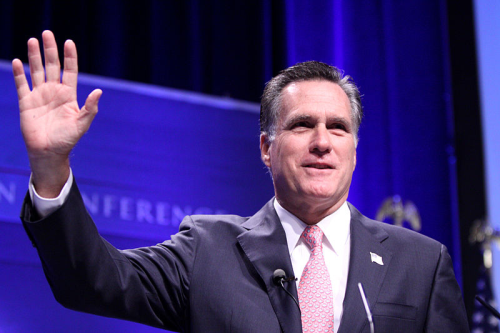 |
Many, if not all, of this summer’s presidential campaign ads are vehemently negative, highly critical, and somewhat sensationalistic. But are they misleading? And do viewers believe what they hear?
Interestingly enough, one of the blondes at Fox News (also known as Megyn Kelly) — a network often chided for its questionable fact-checking – recently accused both Obama and Romney of telling tales in their attack ads, screaming, “When [Obama and Romney] go to the ad campaigns, they’re completely negative! And and they lie! They lie!… Does truth matter?!”
One example of the ad-mud-slinging included Romney’s heavy-handed editing to make it look as if Obama insulted business owners by telling them they did not build their businesses on their own. Romney ‘s “you didn’t build that”attack is especially misleading, even in the midst of a markedly negative campaign. The Romney folks basically took an Obama speech in which he explained that infrastructure such as roads and bridges are necessary to build businesses, and cut out the part about the roads so that Obama’s message was changed to, “you didn’t build that business yourself.” Romney then put a salty business owner in one of his ads, who asked Obama why he was demonizing small business owners like himself.
In a Friday interview with WCTV-TV in Tallahassee, Obama explained: “What I said was together we build roads and we build bridges.” He added, “That’s the point I’ve made millions of times, and by the way, that’s a point Mr. Romney has made as well, so this is just a bogus issue.”
Taking quick action, the Obama camp cleverly shot back with an internet ad of their own: “Mitt will say anything.” The ad shows clips of his speech where he made the purported diss against business owners, refutes Romney’s mischaracterization, and then shows clips of a Romney speech containing a familiar refrain: you can’t really build businesses without roads and bridges (click here to view the ad).
The other, more widely known campaign ad controversy, is Obama’s attack on Romney’s reign at Bain Capital from 1992-2002. In spite of documentary evidence to the contrary, Romney maintains that Obama is all wrong about his status at Bain during the years in question, when the company conspicuously closed down U.S. businesses (e.g. GST Steel in Kansas City) in favor of jobs oversees. Romney has long claimed that he departed Bain in 1999, and therefore has nothing to do with Bain’s questionable behavior. He wants an apology from Obama. But Obama won’t apologize. The President maintains that Romney was at Bain from 1999 to 2002, relying in part on SEC filings for those years, which list Romney as sole shareholder, director, chief executive officer, and president (there is also a state disclosure firm showing that he earned $100,000 as a Bain executive during 2001 and 2002, in addition to his investment earnings).
Despite the controversy over this style of ads, sometimes it’s necessary. It’s time to ferret out some answers about the amorphous Mormon, his Bain exploits, his riches, and how much he pays in taxes. As long as Obama doesn’t frankenbite Romney’s speeches, I’d say it’s fine.
